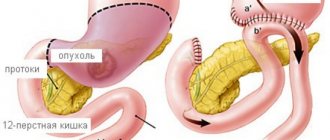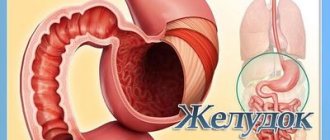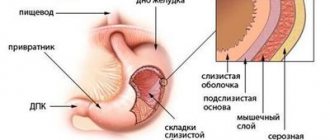A symptom such as an acetone smell coming from the mouth is not normal and can be treated. The cause of the smell of acetone from the mouth of an adult may be a serious illness.
. The intensity of the odor varies; it depends on the degree of aggressiveness of the pathological processes occurring in the body.
The smell of acetone on your breath - does diet matter?
The content of the article
An acetone odor from the breath is felt in people on a low-sugar diet. A decrease in the concentration of carbohydrates leads to the fact that the main source of energy for the body becomes fats, which form ketone bodies. Fats will also be the main source of energy received by the body in case of fasting and a small supply of sugars.
Symptoms of elevated ketone levels due to the ketogenic diet:
- Smell of acetone from the mouth.
An increased concentration of ketones is indicated by a noticeable smell of sour apples from the mouth. - Decreased activity
. Reducing the intake of carbohydrates initially leads to a feeling of constant fatigue, dizziness and nausea. Physical strength also decreases. This state lasts for several days or weeks until the body begins to burn more fat and switches to a new source of energy. - Disruption of the gastrointestinal tract
. The ketogenic diet can also lead to diarrhea and constipation. - Insomnia.
Sleep disturbances are a kind of signal from the body about carbohydrate deficiency. - Decreased appetite.
Patients begin to lose weight and appetite. This is due to the fact that a decrease in the concentration of carbohydrates in the blood leads to a decrease in the concentration of insulin and an increase in glucagon, which stimulates the oxidation of fatty acids. Increased protein degradation when using this diet can lead to negative consequences due to protein deficiency.
A low-carbohydrate, low-fat diet that leads to ketosis has long been used to treat epilepsy, especially in children.
Symptoms
Acetonemic syndrome often occurs in children with constitutional abnormalities (neuroarthritic diathesis). Such children are distinguished by increased excitability and rapid exhaustion of the nervous system; they have a thin physique, are often excessively fearful, suffer from neuroses and restless sleep.
At the same time, a child with a neuro-arthritic constitutional anomaly develops speech, memory and other cognitive processes faster than his peers. Children with neuro-arthritic diathesis are prone to impaired metabolism of purines and uric acid, therefore in adulthood they are susceptible to the development of urolithiasis, gout, arthritis, glomerulonephritis, obesity, and type 2 diabetes mellitus.
Symptoms of acetone syndrome:
- The child's breath smells of acetone. The same smell comes from the baby's skin and from his urine.
- Dehydration and intoxication, pale skin, the appearance of an unhealthy blush.
- The presence of vomiting, which can occur more than 3-4 times, especially when trying to drink or eat something. Vomiting may appear in the first 1-5 days.
- Worsening of heart sounds, arrhythmia and tachycardia.
- Lack of appetite.
- Increased body temperature (usually up to 37.50C-38.50C).
- As soon as the crisis begins, the child shows anxiety and agitation, after which he becomes lethargic, drowsy and weak. Extremely rare, but seizures may occur.
- There are cramping pains in the abdomen, stool retention, nausea (spasmodic abdominal syndrome).
Often, the symptoms of acetonemic syndrome occur due to malnutrition - a small amount of carbohydrates in the diet and a predominance of ketogenic and fatty amino acids in it. Children have an accelerated metabolism, and the digestive system is not yet sufficiently adapted, as a result of which ketolysis decreases - the process of utilization of ketone bodies slows down.
Acetone breath and diabetes
Diabetes is a group of metabolic diseases that involve hyperglycemia—high blood sugar levels—associated with impaired insulin function or secretion. The patient's body, which cannot use carbohydrates as a source of energy as a result of impaired insulin secretion or action, begins to use fats for this purpose. As a result, ketone bodies are formed, which is the reason for the smell of acetone in the mouth. Some patients compare this smell to the smell of acid, gas or gasoline.
Chronic hyperglycemia causes damage to various organs, mainly the kidneys, eyes, blood vessels, heart and nerve fibers. There are several types of diabetes:
- type 1 diabetes;
- type 2 diabetes;
- gestational diabetes.
Type 1 diabetes is characterized by an absolute lack of insulin due to the destruction of beta cells in the pancreas. But the most common form of diabetes is type 2, which is characterized by impairment of both insulin secretion and function.
Diabetes
Typical symptoms of diabetes: increased thirst, polyuria, dehydration, drowsiness and weakness.
What it is?
Acetonemic syndrome is a condition that occurs when metabolic processes in a child’s body are disrupted, a kind of failure in metabolic processes. At the same time, no malformations of the organs, no violations in their very structure are detected, it’s just that the functioning of, for example, the pancreas and liver is not regulated.
This syndrome itself is one of the manifestations of the so-called neuro-arthritic anomaly of the constitution (neuro-arthritic diathesis is the old name for the same condition). This is a certain set of character traits combined with a certain functioning of the child’s internal organs and nervous system.
Smell of acetone on the breath - ketoacidosis
Patients with diabetes can develop a life-threatening complication called ketoacidosis. This is a complex of acid-base disorders in which ketones appear in the urine and blood. This condition occurs as a result of insulin deficiency. Ketone bodies are most often produced in patients with type I diabetes, but may be present in test results in patients with other types of diabetes.
Sour breath is not the only symptom of this type of metabolic acidosis. Dehydration, glucose in the urine, electrolyte disturbances, disturbances of consciousness, feelings of weakness, drowsiness, vomiting, nausea, abdominal pain, chest pain, headache, dizziness, flushing, rapid heartbeat and rapid breathing are also observed. Without treatment, acidosis can cause coma.
In addition to diabetes, ketoacidosis and therefore acetone breath can cause:
- bacterial, fungal, viral infections, which increase the need for insulin;
- errors in insulin treatment;
- heart attack and stroke;
- pancreatitis.
Diagnostics
The initial examination of patients is carried out by a general practitioner, who, if pathognomonic signs of damage to a certain organ are detected, gives a referral to a highly specialized specialist. To find out why the taste of acetone appeared in the mouth, advanced laboratory tests and modern instrumental studies are prescribed. The most informative in diagnostic terms are:
- Standard blood tests
. A general blood test evaluates the level of leukocytosis and ESR, which helps to exclude infectious causes of unpleasant taste. A biochemical blood test shows the condition of the liver and biliary system, the degree of decrease in kidney function. In case of disturbances of consciousness, arterial blood gasometry is recommended. - Determination of hormone levels
. It is imperative to examine the fasting insulin concentration; to confirm the diagnosis of diabetes mellitus, an oral glucose load test and measurement of C-peptide levels and a test for acetone in the urine are important. Young women undergo a pregnancy test, taking into account the amount of estrogen and progesterone, hCG. - Ultrasonography
. Targeted ultrasound of the pancreas allows us to identify areas of destructive changes in the parenchyma, cysts or neoplasms that affect insulin synthesis. Using ultrasound, hepatic pathology is diagnosed, and the degree of fibrosis is determined by non-invasive elastometry. - X-ray imaging
. Abdominal CT facilitates the differential diagnosis of inflammatory and destructive liver diseases. An MRI of the brain is performed to rule out a neurological cause for the acetone taste in the mouth. Scintigraphy of the thyroid gland is needed to determine the degree of hyperfunction of the organ. - Invasive methods
. To confirm the etiological factor of liver damage, a percutaneous or transvenous biopsy is performed, followed by histological examination. A puncture biopsy of the thyroid gland is used to identify acute thyroiditis and autoimmune processes that are accompanied by thyrotoxicosis.
To verify the cause of unpleasant taste sensations when exogenous intoxication is suspected, an extended toxicological blood test is indicative. Virological studies are necessary to diagnose viral hepatitis. For patients with inappropriate behavior, examination by a neurologist or psychiatrist and an EEG are required. In the diagnosis of renal failure, data on GFR and creatinine clearance are informative.
Acetone smell from child's mouth
Children's breath smells like acetone most often due to type I diabetes. The disease develops slowly and insidiously, so parents often do not know that their child is sick. In addition, young patients often experience weight loss, excessive thirst, weakness, and pollakiuria.
This type of odor can also occur when a child doesn't drink enough. Sometimes parents report an ammonia odor from their child's mouth during an infection such as pharyngitis.
A strange smell from the mouth should prompt parents to contact a pediatrician, who will prescribe the necessary examinations.
Other causes of the problem
Negative symptoms may result from:
- diseases of the gastrointestinal tract;
- damage to blood vessels;
- severe pregnancy;
- infections;
- "fasting" days.
The reasons can be very different and most often, without medical help, a person cannot understand what is wrong. Therefore, you should not self-medicate and experiment with your own health. The most reasonable thing is to see a doctor and get blood and urine tests.
What diseases does the feeling of acetone in the mouth indicate?
Most often, the taste of acetone appears in the morning and does not come even after thorough brushing of the teeth. This symptom appears due to the following reasons:
- low carbohydrate diet;
- prolonged fasting;
- pregnancy;
- kidney or liver disease;
- alcohol abuse;
- significant physical activity;
- acetonemic syndrome;
- diabetes;
- accumulation of ketone compounds;
- high level of thyroxine in the blood;
- mental disorders;
- neurodegenerative diseases.
It is unlikely that you will be able to independently determine the reasons for the unpleasant taste. If a symptom persists for a long time, you should definitely consult a doctor and undergo all necessary diagnostics.
Some of these diseases can cause an alcohol taste in the mouth. This happens because our brain tries to adapt unfamiliar tastes to familiar ones. This is how the taste of acetone becomes the taste of alcohol.
Cherepenko Lyudmila Vikentievna
doctor - therapist • doctor - cardiologist
If nausea and vomiting develop against the background of an unpleasant taste, and the general condition rapidly worsens, this is a reason to consult a doctor as soon as possible. Our doctors will draw up a clinical picture of the disease over the phone at any time of the day and give you recommendations for further treatment.
Online consultation
Prevention measures
Parents whose child is prone to this disease should have glucose and fructose preparations in their home medicine cabinet. Also, you should always have dried apricots, raisins, and dried fruits on hand. The baby's meals should be fractional (5 times a day) and balanced. As soon as any sign of an increase in acetone appears, you should immediately give the child something sweet.
Children should not be allowed to overexert themselves, either psychologically or physically. Daily walks in nature, water procedures, normal eight-hour sleep, and hardening procedures are shown.
Between attacks, it is good to carry out preventive treatment of crises. This is best done in the off-season twice a year.
How to treat acetone syndrome
If an acetonemic crisis develops, the child must be hospitalized. Dietary correction is carried out: it is recommended to consume easily digestible carbohydrates, strictly limit fatty foods, and provide frequent drinking in large quantities. A good effect is obtained from a cleansing enema with sodium bicarbonate, a solution of which can neutralize some of the ketone bodies that enter the intestines. Oral rehydration using combined solutions (Orsol, Rehydron, etc.), as well as alkaline mineral water, is indicated.
The main directions of treatment of non-diabetic ketoacidosis in children:
1) A diet (enriched in fluids and readily available carbohydrates with limited fat) is prescribed to all patients.
2) The administration of prokinetics (motilium, metoclopramide), enzymes and cofactors of carbohydrate metabolism (thiamine, cocarboxylase, pyridoxine) promotes an earlier restoration of food tolerance and normalization of fat and carbohydrate metabolism.
3) Infusion therapy:
- quickly eliminates dehydration (deficiency of extracellular fluid), improves perfusion and microcirculation;
- contains alkalizing agents, accelerates the restoration of plasma bicarbonate levels (normalizes acid-base balance);
- contains a sufficient amount of easily accessible carbohydrates, which are metabolized in various ways, including those independent of insulin;
4) Etiotropic therapy (antibiotics and antiviral drugs) is prescribed according to indications.
In cases of moderate ketosis (acetonuria up to ++), not accompanied by significant dehydration, water-electrolyte disturbances and uncontrollable vomiting, diet therapy and oral rehydration are indicated in combination with the prescription of prokinetics in age-related doses and etiotropic therapy of the underlying disease.
When treating acetone syndrome, the main methods are those aimed at combating crises. Supportive treatment is very important to help reduce exacerbations.
How is acetone formed in the human body?
The bulk of energy in the body comes from glucose . The blood carries glucose throughout the body, and thus it enters all tissues and cells. But if there is not enough glucose, or there are reasons that prevent it from entering the cells, the body looks for other sources of energy. Typically these are fats. After their breakdown occurs, various substances, including acetone, enter the bloodstream. It is with this process that the causes of acetone in the blood in adults and children are associated.
After this substance appears in the blood, the kidneys and lungs begin to secrete it. Consequently, the test for acetone in the urine becomes positive, a strong smell of urine is felt, and the air that a person exhales gives off the aroma of pickled apples - a characteristic aroma of acetone or the smell of vinegar from the mouth appears.
The main reasons for the appearance of a characteristic odor:
- fasting , dieting, severe dehydration;
- hypoglycemia in patients with diabetes mellitus ;
- kidney and liver diseases;
- thyroid diseases;
- predisposition to acetonemia in children.
Let's consider the listed reasons in more detail.
Starvation
Sometimes it seems that in the modern world almost everyone goes on diets from time to time - both women and men. Some people practice even more extreme methods to get rid of extra pounds by practicing fasting. It is by adhering to diets that have nothing to do with medical indications or doctor’s recommendations that over time people notice a deterioration in their health and unpleasant changes in appearance.
If a person tries to completely eliminate carbohydrates from the diet, this can cause a lack of energy and too active breakdown of fats. As a result, an excess of harmful substances is formed in the body, intoxication , and all organs and systems will function differently from those of a healthy person.
When following a very strict no-carb diet, you may notice many negative changes over time. dizziness and severe irritability appear It is after such diets that the smell of acetone appears from the mouth.
Anyone who wants to lose weight should first visit a doctor and consult with him about a possible diet. You definitely need to go to specialists and those who are already noticing the negative consequences of diets.
Those who are losing weight must remember the most dangerous nutritional systems and diets:
- The Kremlin diet - it provides for a very serious restriction of carbohydrates. Preference is given to protein foods. The diet is unbalanced and dangerous for the body.
- The Atkins diet is a low-carbohydrate diet for a long time. Carbohydrate intake is intentionally limited so that the body switches its metabolism to use fat as energy fuel. With such a nutritional system, the level of ketone bodies , a person often feels weak, and develops digestive problems.
- Kim Protasov's diet lasts five weeks; the basis of the diet during this time is fiber and protein foods. The amount of fat and carbohydrates consumed is very low.
- Protein diet - sticking to it, you need to eat exclusively protein foods. This diet is extremely dangerous for health. Fans of this diet justify its safety by the fact that it is not long-term - no more than two weeks. However, even during this period a person can significantly undermine his health.
- French diet - with this food system, dietary meat, fish, herbs, vegetables, and fruits are allowed. Sweets, fruit juices, and bread are prohibited. Moreover, daily food portions are very small. Therefore, already within the 14 expected days of the diet, the body’s condition may worsen.
Diabetes
It is with this serious disease that the smell of acetone most often appears from the mouth of adults. In diabetes, there is an excess of sugar in the blood that does not penetrate into the cells due to insulin deficiency. As a result, a dangerous condition for the body develops called diabetic ketoacidosis . This happens if the blood glucose level is more than 16 mmol per liter.
The following signs of diabetic ketoacidosis are noted:
- positive test for acetone in urine;
- aroma of acetone from the mouth;
- abdominal pain;
- feeling of intense thirst;
- vomit;
- depression of consciousness, coma .
If such symptoms develop, seek emergency help immediately. After all, if you do not provide medical care to a patient with ketoacedosis, he can fall into a deep coma and even die.
Pay special attention to the smell and taste of acetone in the mouth for people who have the following risk factors:
- newly discovered type 1 diabetes mellitus ;
- diabetes mellitus type 2 , provided that insulin is administered incorrectly and untimely;
- surgical interventions, infectious diseases, pregnancy and childbirth in people with type 2 diabetes.
It is important to understand that this manifestation can be a serious signal. Therefore, if the taste and smell of acetone appears in the conditions described above, it is important to immediately consult a doctor, who will determine the causes of the taste of acetone in the mouth.
Treatment for diabetic ketoacidosis is as follows:
- Insulin is administered - this is the main part of the treatment. For this purpose, long-term administration of the drug using a dropper is practiced.
- Treat dehydration.
- Take measures aimed at maintaining the functioning of the kidneys and liver.
To prevent the development of ketoacidosis, people with diabetes must strictly follow all the recommendations of their doctor, take insulin on time and promptly respond to all alarming symptoms.
Thyroid diseases
If, due to disturbances in the functioning of the thyroid gland, the breath smells like acetone and the smell of acetone appears in the nose, then such signs should be considered an alarming signal.
In people suffering from hyperthyroidism , the production of thyroid hormones is too active. As a rule, a person takes medications to normalize this process. But sometimes the production of hormones occurs too actively, and as a result, metabolic processes in the body accelerate. As a rule, this happens in the following cases:
- if hyperthyroidism is combined with surgery on the thyroid gland;
- after severe stress;
- during pregnancy and childbirth;
- due to inaccurate examination of the gland.
Such crises occur suddenly, so all the signs appear at the same time. Excitement or lethargy develops, up to psychosis or coma , abdominal pain, fever, jaundice . There is also a strong smell of acetone from the mouth.
It is important to understand that thyrotoxic crisis is a very dangerous condition, and in this case you need to urgently seek medical help. In this case, the patient is given a drip to eliminate dehydration. Medicines are also used to stop the production of thyroid hormones and maintain the functioning of the kidneys and liver.
Such causes of the smell of acetone in the nose and mouth should never be eliminated at home, because this can be life-threatening.
Liver and kidney diseases
The liver and kidneys are organs that cleanse the body. They filter the blood and ensure the removal of toxins. But if chronic diseases of these organs develop, then the excretory function is impaired. As a result, harmful substances accumulate, including acetone. If we are talking about severe conditions, then not only does the breath smell of acetone, but the urine also stinks of it. It is problems with the kidneys and liver that are often the answer to the question of why an acetone odor emanates from the human body. Often, if a child’s urine smells like acetone, this is also caused by liver and kidney diseases. After treatment for liver or kidney failure, hemodialysis , this symptom disappears.










